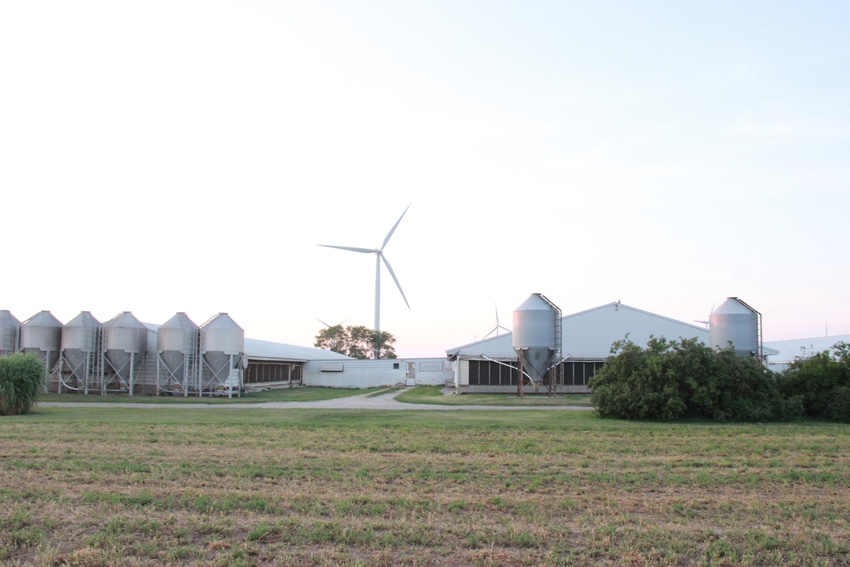- Nutrition & Health
- Swine Health and Nutrition
- Dairy Health and Nutrition
- Beef Health and Nutrition
- Poultry Health and Nutrition
USAID taps consortium for animal ag program
Five-year program to help improve livestock management, combat threat of zoonotic diseases.
April 13, 2021

The United States Agency for International Development (USAID) has tapped a consortium led by Cargill and including Ausvet, Heifer International, and the International Poultry Council (IPC) to improve livestock management and combat the threat of zoonotic diseases to both human and animal health. The five-year, $33 million Transformational Strategies for Farm Output Risk Mitigation (TRANSFORM) consortium will harness innovation to sustainably improve animal health, strengthen animal agriculture production systems in Asia and Africa and enhance global health security.
As a farm-based initiative, TRANSFORM will prioritize efforts to significantly decrease the risks of antimicrobial resistance (AMR) and zoonoses, diseases spread from animals to humans such as foodborne pathogens, anthrax and Avian and swine influenza. The group will also consider transboundary animal diseases (TADs,) such as foot-and-mouth disease and African swine fever. Scientists estimate that more than three out of five known infectious diseases in people can be spread from animals, and 75% of new or emerging infectious diseases in people come from animals.
Smallholder farmers around the world are particularly vulnerable to transboundary animal diseases, with livestock representing their main source of food and income, and access to veterinary services often limited.
Together, Cargill, Ausvet, Heifer International and the IPC will increase the capacity of government, agribusinesses, and farmers to prevent and, if needed, identify and quickly respond to these threats to human health. By working through animal agriculture markets and supply chains and showing how changes to production processes can increase farmers’ incomes, TRANSFORM aims to bring about long-lasting change within the livestock sector in Africa and Asia.
“We know that agriculture can help solve some of the world’s most pressing challenges,” said Chuck Warta, head of Cargill’s health technologies business. “We’re honored to have been selected to lead this important work and are confident that Cargill’s global reach and research capabilities, combined with our partners’ unique expertise and influence in animal agriculture, can minimize these massive threats to our global food system and to human health.”
TRANSFORM partners lead farm-based approach
TRANSFORM will work in several key geographies, on large and small farms, with a variety of species. Beginning in 2022, Cargill will conduct nutrition and immune health trials on dairy, poultry, shrimp and swine operations in four countries throughout Asia and Africa to better understand and quantify the role holistic animal nutrition can play in reducing the threats of zoonotic diseases to human health.
Ausvet will expand its health information system to serve farms of all sizes in Indonesia and Vietnam. The group will collect real-time data and insights on disease occurrence, vaccination programs, and antibiotic usage so farmers, governments and industries can make data-driven decisions to maintain and improve animal health and its connection to human health.
“As epidemiologists, we know that good decisions require good information,” said Dr. Angus Cameron, director at Ausvet. “Our approach focuses on working with the farmers, their veterinarians, other service providers and value chain players, providing them with a service to better manage their own data, integrate it, analyze it, and provide real-time reliable information to help them make better disease management decisions.”
Increased profitability for farmers will be key to TRANSFORM's long-term impact. Heifer International will work with smallholder farmers in India and Kenya to improve biosecurity and animal management and health, with the added benefit of increasing farmer incomes.
“Smallholder farmers produce the majority of the world’s food. By equipping them with tools to improve animal management and biosecurity, we are supporting the production of safe, healthy food that improves nutrition, while preventing the spread of pathogens that threaten global human health,” said Pierre Ferrari, president and CEO of Heifer International. “Heifer International is working with community veterinarians to embed knowledge of new practices into the services they provide and supporting farmers to access finance, incentivizing sustainable adoption of biosecurity practices by small-scale livestock producers.”
IPC will lead the development and adoption of industry-wide principles, policies and standards around antimicrobial stewardship within the poultry industry.
“IPC brings together poultry industry stakeholders from across the globe, and throughout the total value chain, to build relationships and address shared challenges,” said Robin Horel, IPC president. “IPC has an industry-wide commitment to antimicrobial use stewardship and seeks to leverage our network to advance systems thinking approaches, and best practices, that can be scalable globally through private sector leadership in proactively addressing transboundary or foodborne risks.”
The key to the consortium’s success will be developing and implementing innovative and market-driven solutions that increase access to safe, affordable, high quality animal-sourced nutrition while improving global human health security.
You May Also Like



